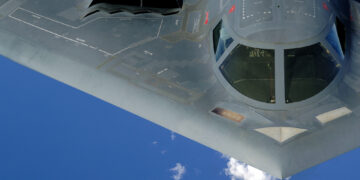September 5, 2023
The bad and good news about Iran’s nuclear program

The International Atomic Energy Agency, the world’s chief nuclear watchdog, leaked snippets of its latest quarterly report about Iran’s nuclear program last week. The picture is, at best, murky: good news wrapped in bad news, wrapped in confusion and ambivalence about the way ahead.
First, the bad news: Tehran remains extremely uncooperative with the IAEA’s investigations about its past nuclear work. Despite an agreement in March that sought to improve the nuclear agency’s ability to do its job, Iran has yet to implement fully what it signed onto. The IAEA has reinstalled some, but not all, of the cameras the Iranians previously ripped out in retaliation for U.S. sanctions. The information scooped up by those cameras is being kept by Tehran, which means the IAEA can’t even see the footage.
The investigations are stalled due to a lack of Iranian cooperation. IAEA staffers are having difficulty getting the required documentation to enter Iran, and Tehran’s stockpile of 60% enriched uranium continues to grow in the meantime. All of this led the IAEA to inform the board that “no progress” has been made in monitoring Iran’s nuclear activities.
Now, the good news: As uncooperative as the Iranians are, Tehran has nonetheless dialed back some technical aspects of its nuclear work. The Iranians aren’t adding many more advanced centrifuges. While Iran’s stock of 60% enriched uranium has grown, the increase was marginal compared to the previous quarter, slowing from 20 kilograms per month to 6.5. Some may view this decrease as irrelevant, but it does represent a faint degree of hope to U.S. officials who have spent years working on the Iran file, often with little to show for it.
More on Middle East

By Jennifer Kavanagh and Dan Caldwell
June 28, 2025

By Rosemary Kelanic and Jennifer Kavanagh
June 25, 2025

Featuring Rosemary Kelanic
June 25, 2025
Events on Iran






